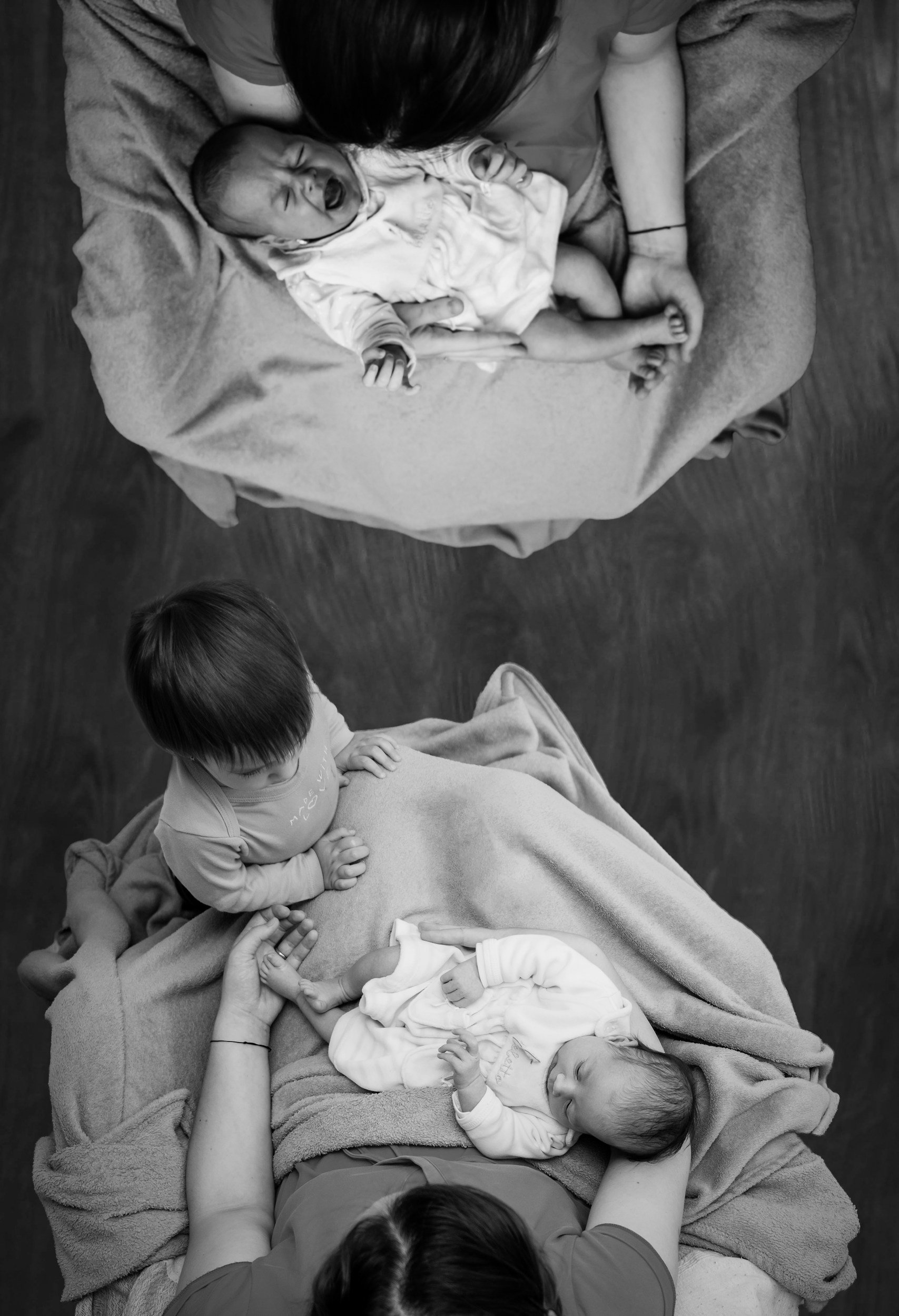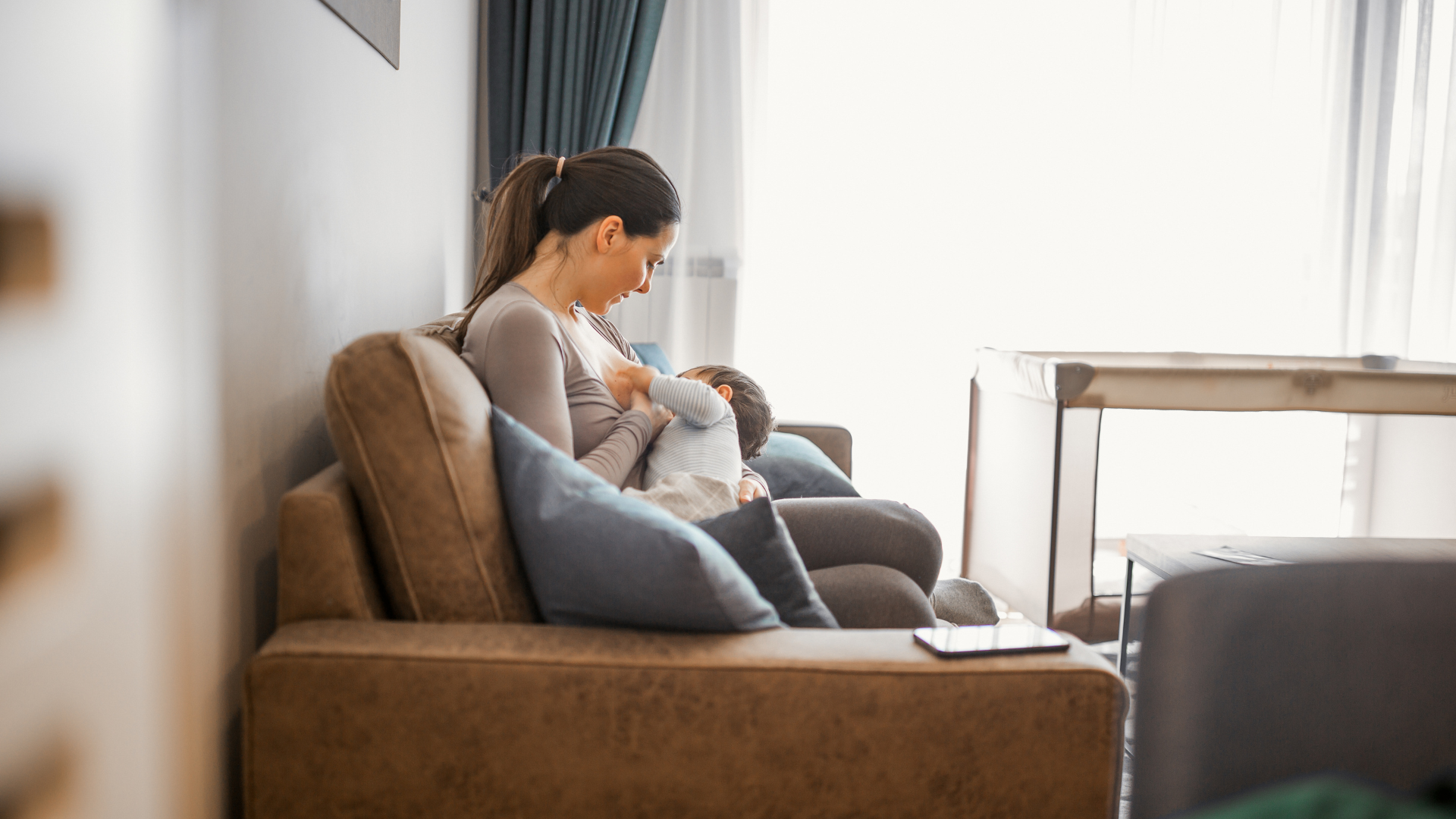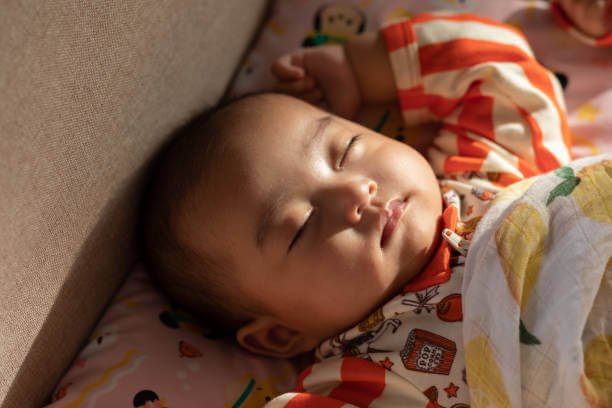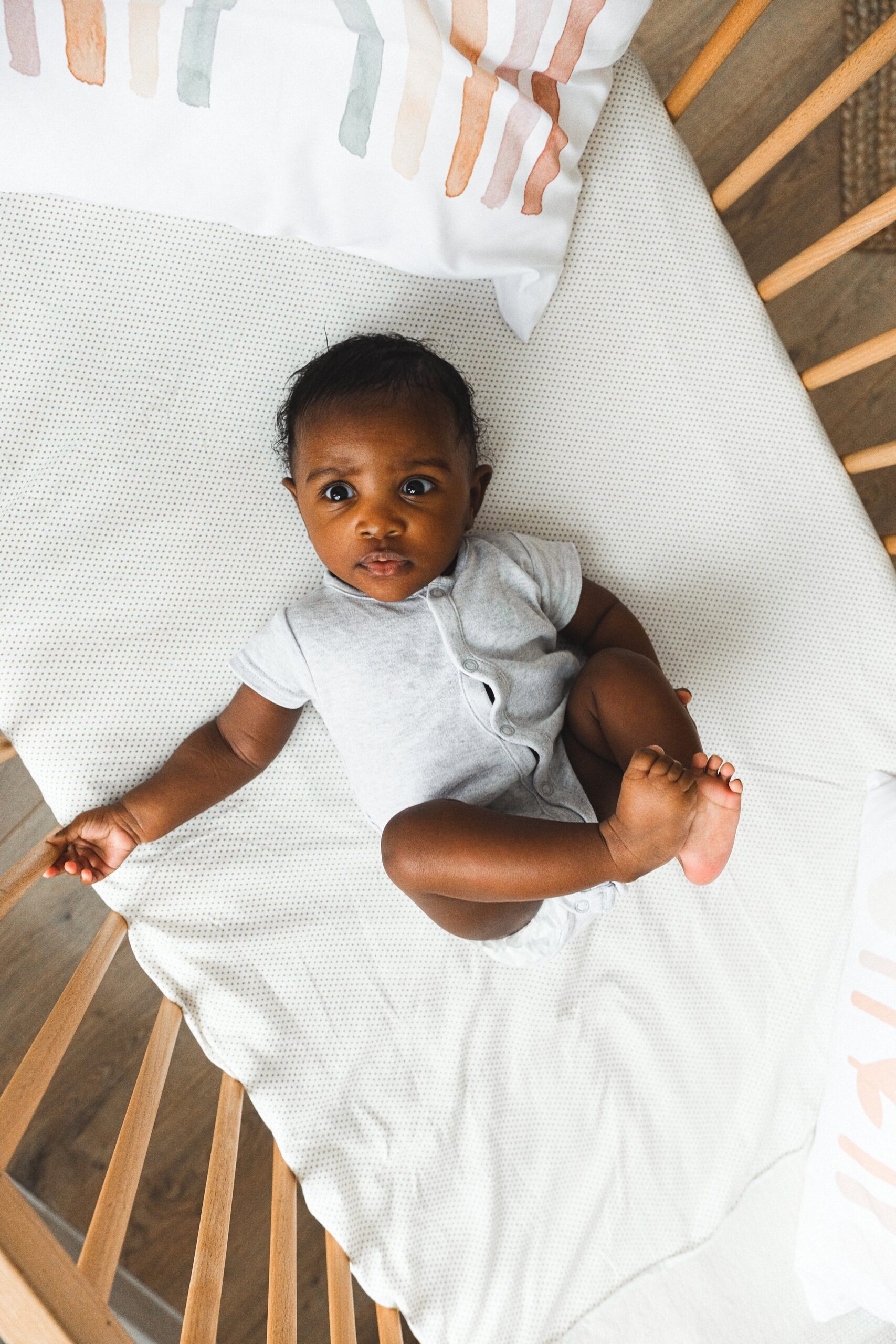I'm Rachael
Mom of 3 & Baby Sleep Expert with Big Sis Energy
& I’VE DONE ALL THE RESEARCH FOR YOU ALREADY.
Better sleep for the entire family
BROWSE COURSES
hey!
is sleep training feminist?
Last week was International Women’s Day, and I saw a lot of interesting articles and quotes floating around online. Of course I’m always viewing these pieces through the lens of modern motherhood and, when applicable, sleep! One particular piece that caught my eye was this article from Vogue which reads, in part:
Sleep deprivation is a feminist issue.
It is a health issue. It is a sanity issue. It is a safety issue. It is a will-that-person-accidentally-drive-into-a-lamp-post issue. It’s a walking into walls, staring into traffic, burning your hand issue. It’s a putting handbags in the freezer, locking yourself out, hallucinating that your baby has rolled between the floorboards issue. It’s an issue that could be solved by compulsory parental leave, more child-friendly workplace cultures, taking women’s health as seriously as men’s, and recognizing domestic work as work.
This excerpt was widely shared online, and I found it through a few friends who shared it on Instagram. And my knee jerk reaction was to agree, of course! But then I saw the comments and how it had (of course) taken a turn into sleep-training vs. not territory. Somehow it became twisted to mean that of course if the sleep deprivation that comes with new parenthood is a feminist issue that is hurting women, then sleep training must be the “feminist” solution. This idea isn’t new. There have been many pieces written on the topic before touting the cliches of second-wave feminism such as “a nation of sleepy women is even less capable of greatness.” Insert eye roll.
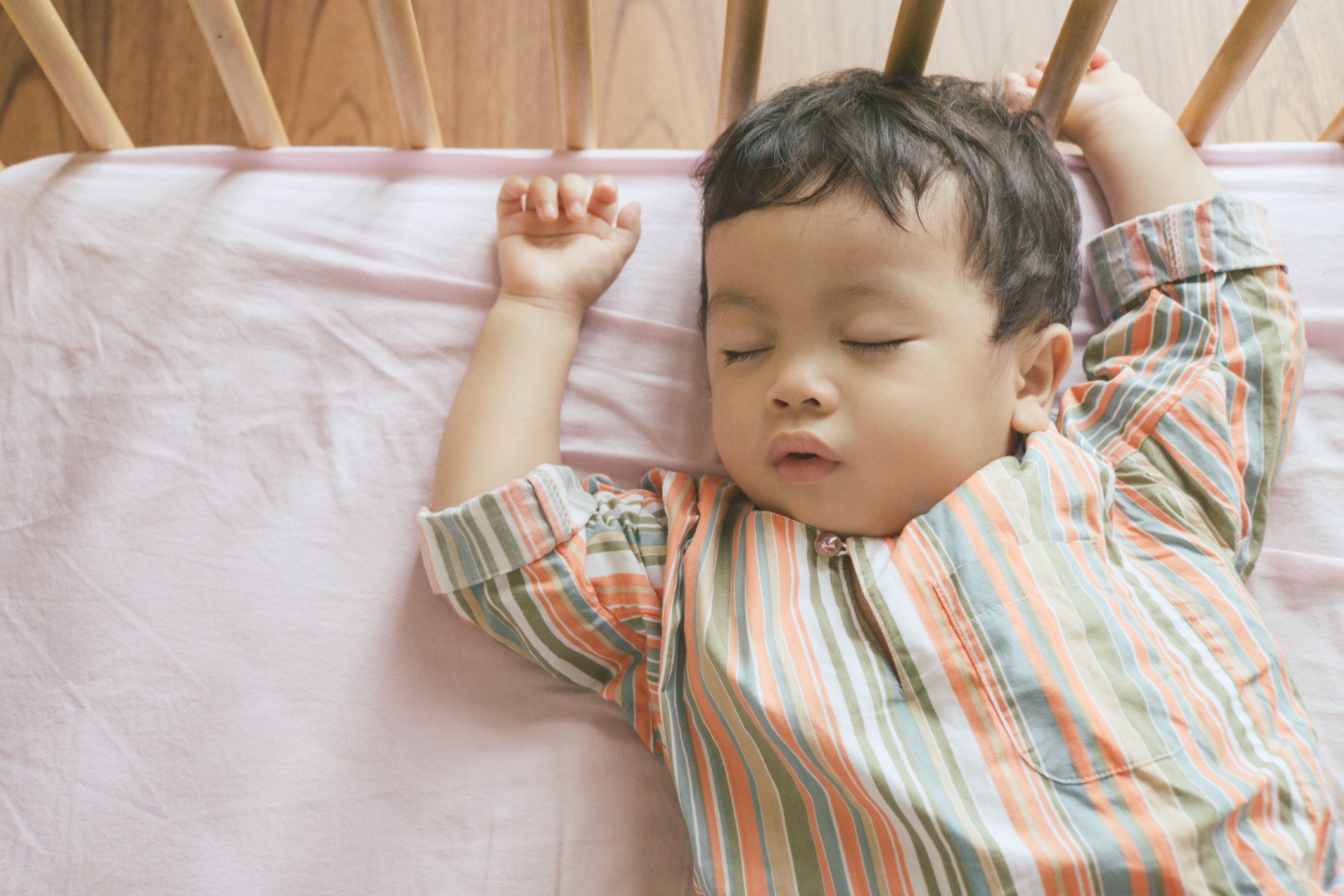
“Sleep Training”
I know lots of people have different ideas about what “counts” as sleep training. I’ve written many posts on the topic for my Instagram page. For the purpose of this blog post, I’m defining sleep training as a behavioral modification technique used on an infant to reduce their signaling to the parent, via a crying/ separation method such as Ferber, Controlled Crying, or Cry it Out.
Sleep itself is a feminist issue. A 2006 meta-analysis found women are 40% more likely to develop insomnia than men. In families with children in which there are two parents of opposite genders, mothers were doing two hours a day more childcare and housework than men. It’s no wonder we’re exhausted. No one is doubting that sleep deprivation is an awful thing to go through- especially coupled with a postpartum mood disorder, which affects at least one in five postpartum mothers. Sleep deprivation is serious, and mostly affects women in the weeks and months following the birth of a baby. These things are unequivocally true and deserving of attention. But is sleep training the answer we need? Is sleep training the “feminist” approach? I think not. Here’s why.
Many, if not most, sleep training methodologies instruct mothers (and fathers) to ignore their instincts to comfort their babies. You’re often given a prescriptive program that instructs you do wait a certain number of minutes before responding to or comforting your crying child, regardless of how you’re feeling inside. You’re often told things like “put in some headphones” or “have a glass of wine” or “leave the house and make your husband do it since you can’t handle the crying.” There are even sleep trainers who charge thousands of dollars to come to your house and sleep train with/ for you, to essentially hold you back from responding to your child when everything in your body is telling you to go to them. It’s one of our great honors as mothers to be our child’s safe place. To be the only thing in the world that brings them comfort. To have them melt into us when they’re upset. Sleep training culture tells us that those things don’t matter and that baby doesn’t need them. This work of nurturing our babies is like other traditionally “feminine” work like teaching, caretaking, nursing etc. The work of the “feminine” is undervalued by our society. What we should be doing as feminists is to make that work be seen as invaluable and worthy of supports, money, resources. We shouldn’t be teaching whole generations of parents that it doesn’t matter and isn’t necessary. Instead we should be adopting a “matricentric” feminism– one that deeply values mothering and sees it as a crucial role in our society.
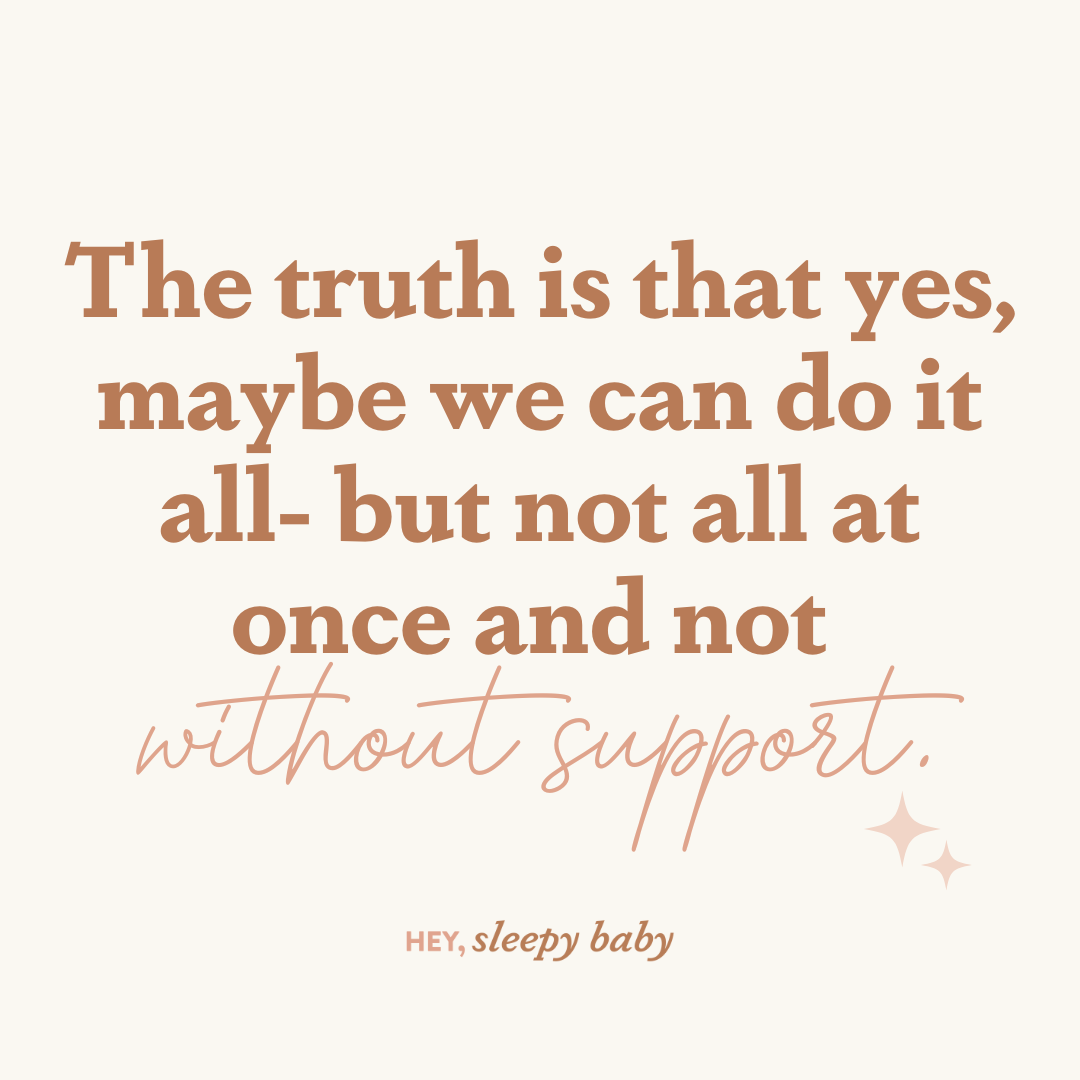
The messages that moms must sleep train in order to keep their careers going, to be a dutiful wife who can have sex with her partner, go on date nights, etc. just ADDS to the pressure women already feel to “do it all.” The “girl boss” and “lean in” era that expects us to mother AND work at 100% (even though, suspiciously, male partners have not had to change at all) has just created a generation of burnt out and resentful women. The truth is that yes, maybe we can do it all- but not all at once and not without support. We cannot do everything for everyone all the time and especially not immediately postpartum. The idea that we must be performing at 100% in all capacities after having a baby is completely unrealistic and unattainable. Sleep training might give some women the reprieve they need in order to “fully function” but what we really should be asking is- “why do we NEED to be fully functioning 4 months after giving birth?” What we actually need is more community supports, systemic policy change, and partners/ family members/ friends who can step up to help us. Infants require 24/7 care by design, and we are not meant to care for them in isolation. Sleep training just fuels our capitalistic society rather than forcing us to critically critique the care and support that is offered to new parents and babies.
Sleep training simply props up a sick society. It doesn’t support long-lasting changes that need to be made to our society and culture- in fact it just fosters the dysfunction and allows it to flourish. It allows women to return to work way too early. It allows capitalism to thrive. It allows our culture to move further and further away from our instincts, from multigenerational knowledge being passed down, from family and community supports. It allows the village to be stripped away. Women don’t need a village if their baby can all of a sudden sleep through the night. Women don’t need extra paid time off if they aren’t waking up at night with their babies. Women don’t need extra protection for pumping at work if most women stop breastfeeding earlier because their supply tanks after sleep training. We won’t go anywhere and nothing will change if sleep training continues to be the mainstream. Of course working mothers are incredible, and many women don’t want to give up or pause their careers after they’ve had kids. Instead of punishing them by making them choose between their passions and careers and identities outside of mothering and their baby’s nurture, employers should be bringing fresh ideas for how to support them to the table. Mothers (and fathers) should be appreciated and accommodated for after they’ve had children, not penalized for it. And if a woman (or man) chooses to stay home with their children, that work should be valued just as much.
A moment to discuss how sleep training actually allows all of this to happen. I’m absolutely willing to admit that yes, sleep training does work sometimes for some babies! Albeit short-lived in many cases, sleep training using methods such as controlled crying or extinction cry it out does tend to be rather effective, though the data on this is extremely murky. The BBC recently published a few pieces on infant sleep by Amanda Ruggeri, and this one in particular is a very succinct glimpse at what we currently know (and don’t know) about efficacy and lasting effects of sleep training. My personal and professional belief on the topic is that sleep training using these methods should be done only after ruling out potential red flags for why a baby is so wakeful, and after presenting education on normal infant sleep and a variety of options to the family. This is where the problem with sleep training culture currently lies, in my opinion- that it’s being offered (and sold) as a preventative or necessary intervention that ALL parents could and perhaps should engage in, that is totally safe and effective. This is categorically wrong, and perhaps should be a whole other blog post- I digress.
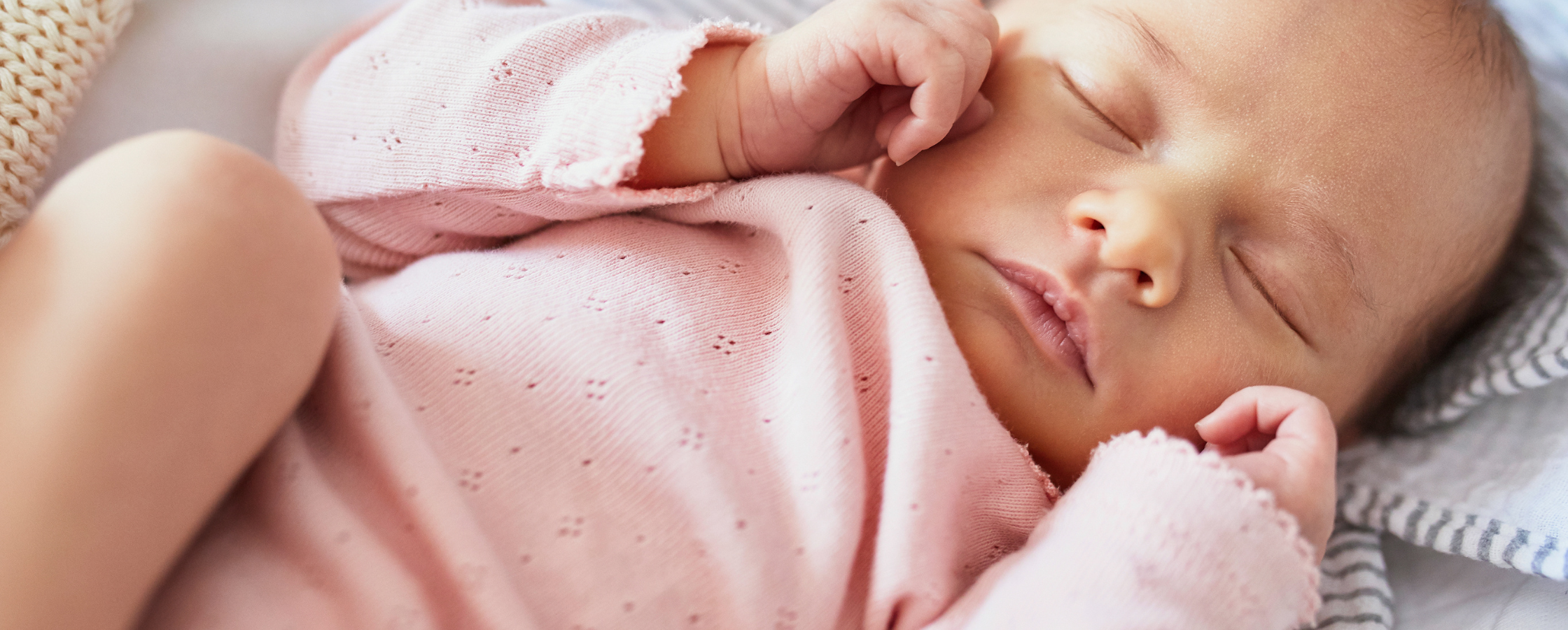
Sleep training also typically lets men/ dads off the hook. Doesn’t sound very feminist, does it? Not only was it invented by men, without any evidence base, but sleep training offers a quick fix “solution” that places baby sleep and feeding solely on the mothers shoulders. Surely there are many dads who are involved in the process (my husband was when we sleep trained O) but for the most part it allows them to not have to participate in nighttime care. Much of the time it’s BECAUSE they won’t participate in nighttime care that the mother feels the need to sleep train at all. I also hear time and time again that mom really doesn’t want to sleep train but that she’s getting pressure from her male partner to do so because “everybody says it’s so great.” So in this situation the male’s needs and wants are being put above what the woman wants and what is best for the baby. The other implicit message is that the man’s work is more important. He must be well rested and “fully functional” during the day because his job is SO important, therefore waking up at night with the baby isn’t even on the table. Whether the mother goes out to work or stays home caring for children, her work is seen as less than, expendable, unimportant. She must make the sacrifice- either be exhausted or sleep train. This sounds pretty not-feminist to me.
In addition to all of the above issues, sleep training cannot be truly feminist because true feminism is intersectional. Intersectional feminism aims to center the voices of those experiencing overlapping, concurrent forms of oppression. To be feminist actually means that we value all those who are oppressed- not just (white) women. This means that to be truly feminist, we value and center babies– who are perhaps the most voiceless and disempowered members of society. Now, this is a nuanced conversation to be had for sure. Just because a parent sleep trains their baby doesn’t mean that that baby isn’t receiving thoughtful and loving parenting during the day. And if a baby is suffering during the day because their parent cannot show up for them due to being severely sleep deprived, unwell and under-supported, and that baby would be better cared for with a caregiver who is rested at night, then sleep training may be able to provide a short-term solution for that particular family. But sleep training in general is still a band aid solution, offered as blanket advice for everyone to do regardless of whether or not they have a real sleep problem, and it is rooted in capitalism and patriarchy.
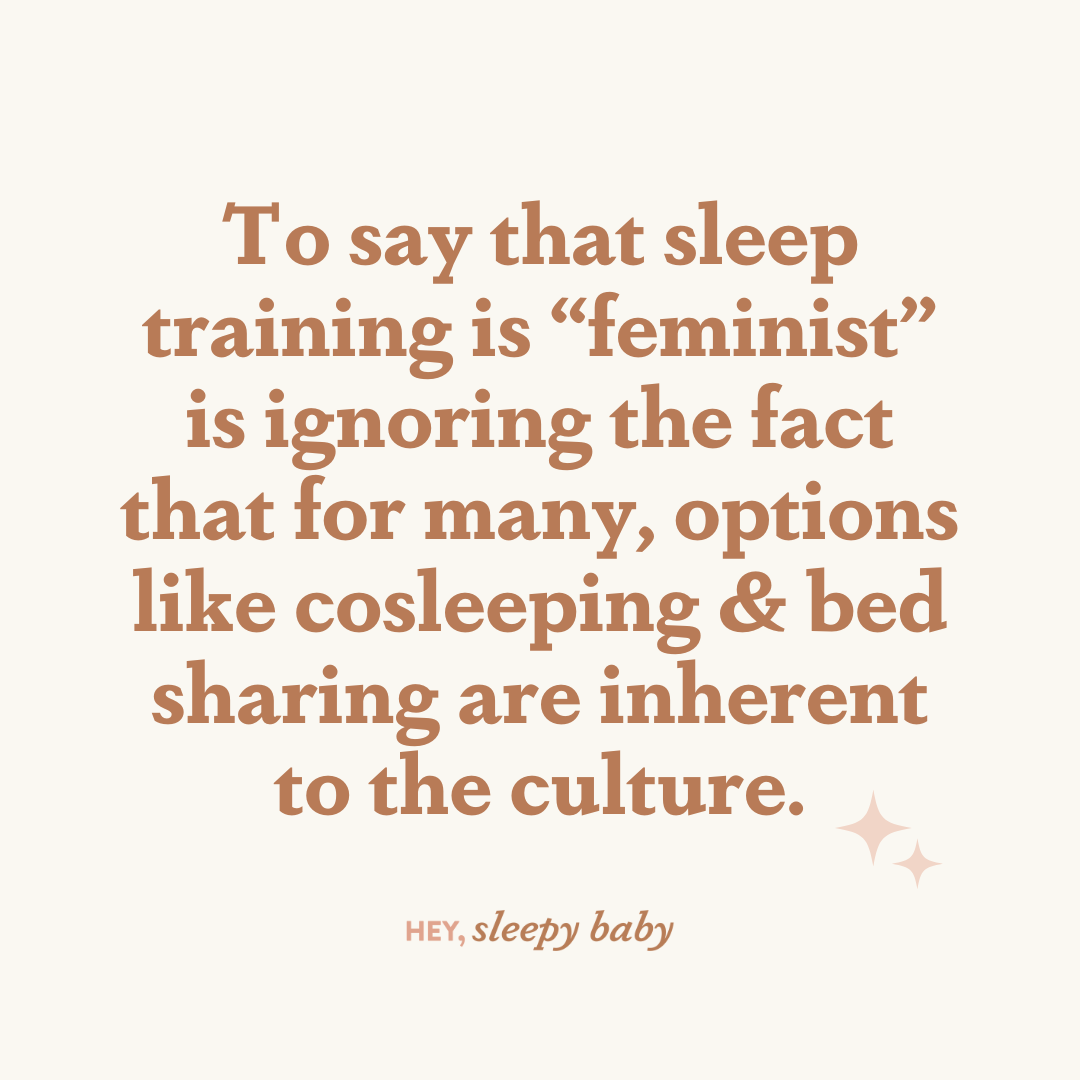
Feminism isn’t intersectional unless it’s including women of color, trans women, women with disabilities and so on. To say that sleep training is “feminist” is ignoring the fact that for many, options like cosleeping and bed sharing are inherent to the culture. It’s ignoring that disabled women may not be able to get their baby in and out of a crib. It’s ignoring the fact that for some women with mental illness, the stress of hearing her baby cry during a method like CIO or Controlled Crying would simply be too much to bear. How many sleep consultants of color do we see online? Not very many. I’m including myself in this, of course, but the whole industry of baby sleep is made up nearly entirely of white women and white male doctors. Sleep training is also insanely cost prohibitive. For women without socioeconomic privilege, sleep training programs, classes, and consultants are simply not an option.
So no, I don’t think that sleep training is a feminist move. I think women having easy access to infant sleep education is feminist. I think women getting to choose whether or not they sleep train and being supported when they do or don’t want to is feminist. I think male partners stepping the f*ck up and being equal nighttime parents, if that’s what the mother wants, is feminist. And I think that supporting our most vulnerable population (babies) is feminist.
I loved what one follower wrote in to me about the topic. When I asked if sleep training was feminist she responded:
No! Sleep training as feminism is just saying “hey there is too high of a burden on women in society so we’re gonna need the babies to have fewer needs. Only possible solution. K thanks. xo
As always I need to add a disclaimer here. The world of baby sleep and sleep training is not black and white. Every family has their own circumstances and comes to their decision on how to approach sleep from different places. I will never judge a parent for looking at all the information available and deciding that sleep training is what they need to do. I also can’t blame families for seeing and believing misinformation on baby sleep, as it is so incredibly rampant, especially online. I KNOW that most parents who sleep train choose to do so with careful thought, and think that doing so will actually help their babies and will make them better parents. And maybe for some it does. I can’t find fault in that- I was there myself. What I AM always critiquing, though, is sleep trainers, doctors, and other community members with power over vulnerable new parents, who willingly spread misinformation and fear-based messaging around infant sleep, especially for profit. That is something I won’t stand for.
For resources on Intersectional Feminism & Maternal Sleep:
-
A Kids Book about Feminism (kids book)
-
Managing Maternal Sleep Deprivation (podcast)
-
Protecting Maternal Sleep (podcast)
-
Nice White Parents (podcast)
-
The Story of Women (podcast)
-
What is Intersectional Feminism? (article)
-
White Feminism (book)
For some of the best resources about the efficacy of sleep training and the research around it, I highly recommend checking out Tracy Cassel PhD and her podcast Evolutionary Parenting where she has several episodes dedicated to the topic.
Featured
Responsive sleep tips and support for parents of multiples or twins.
What are floor beds? When to use them? And How to use them?
Before you start changing anything it’s important that you have ruled out any underlying reasons why your infant might have such a strong link to staying latched.
Was this helpful? Save it for later!
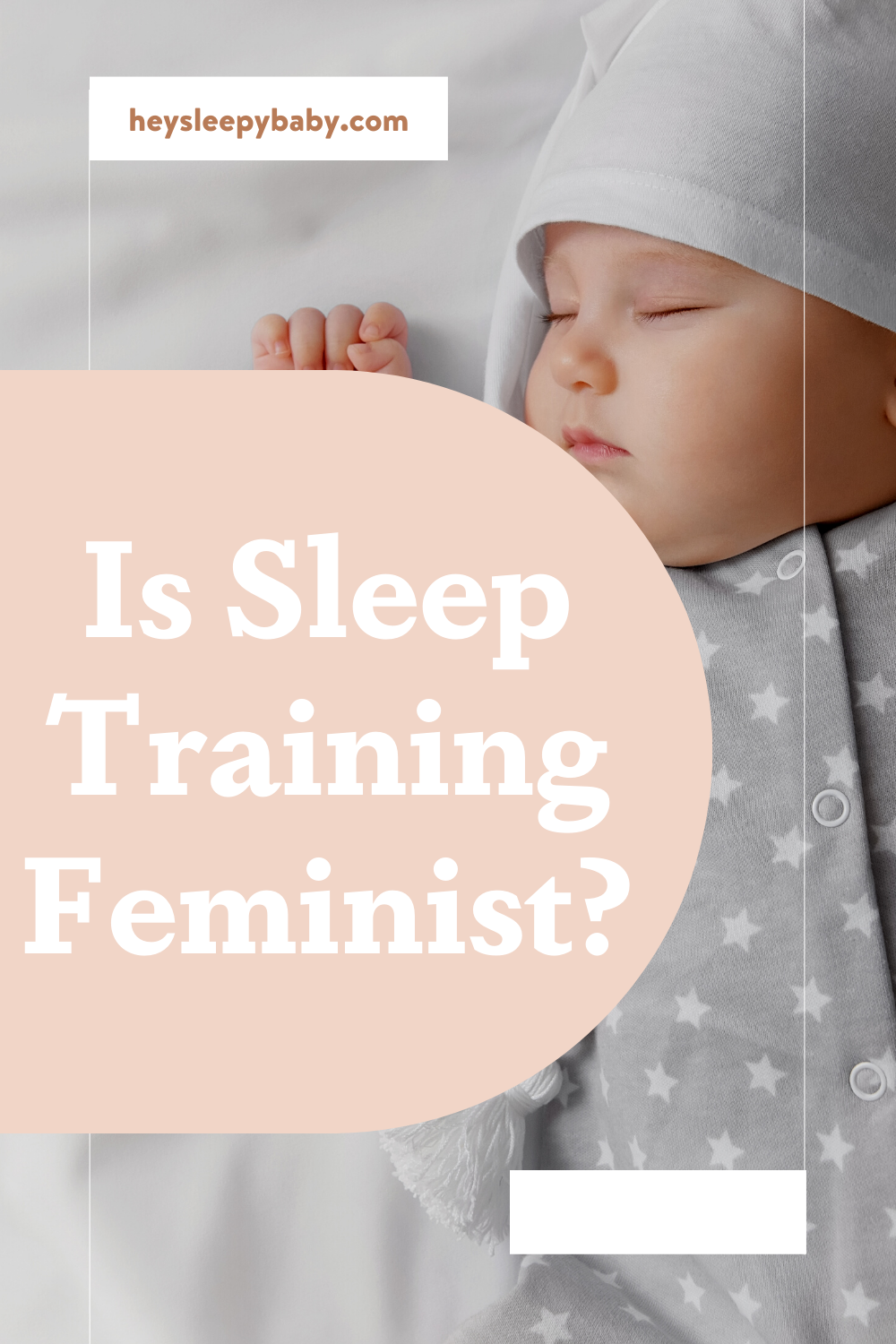
binge reads
We think you'll love these
You deserve to the
baby stage, not just "survive it."
And you DON'T have to sacrifice your values, ignore your instincts, or force yourself to follow a method you don't align with just to get your baby back to sleep.
I’m here to help you create a restful, sustainable sleep environment that honors both your baby’s needs AND your own (without the stress OR the guilt!) because, no, you don’t have to choose between the two.
enjoy!
BABY SLEEP COURSES →
BABY SLEEP CONSULTS →
Wish you could help your baby sleep better without resorting to sleep training? Download my FREE guide to a good night’s sleep and learn 8 simple, science-backed tips for supporting your child’s needs.
Traditional sleep training methods don’t have to be your solution to better sleep.
SLEEP TRAINING ISN’T THE ONLY WAY TO GET GOOD SLEEP
Hey, I'm Rachael and Hey, Sleepy Baby is for parents who want to get their nights back, without sleep training their babies.
NO ONE TOLD US POD
explorING the untold truths of parenting
